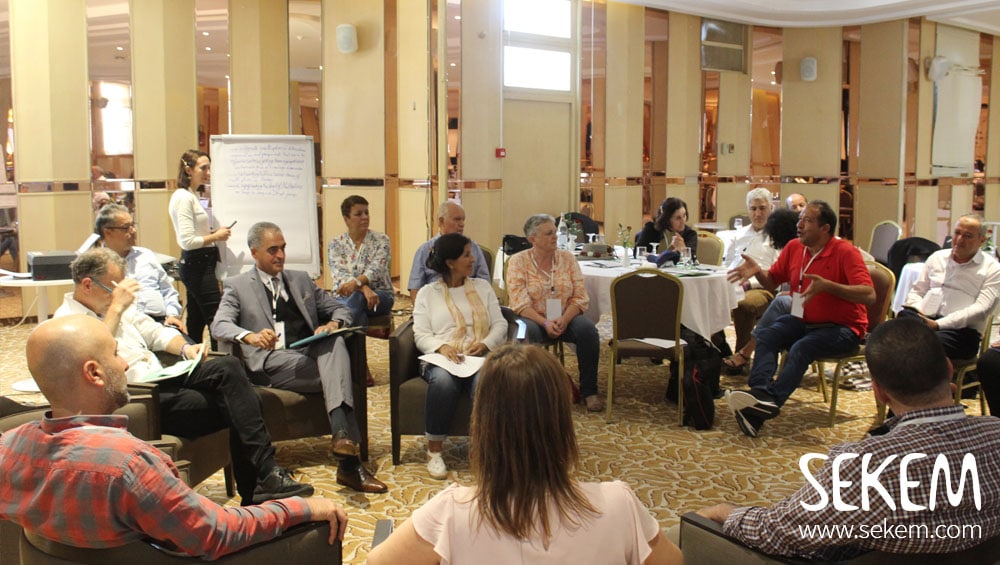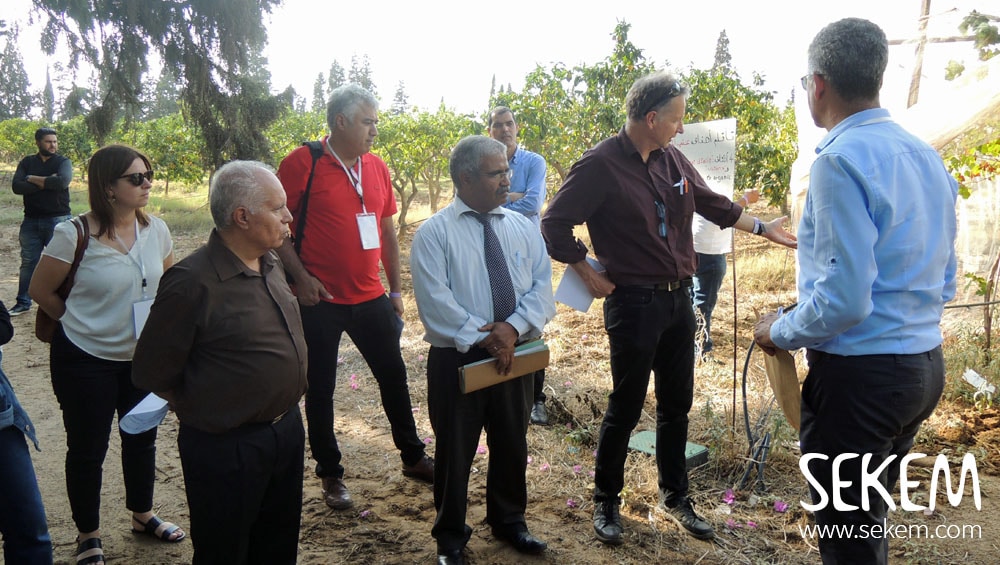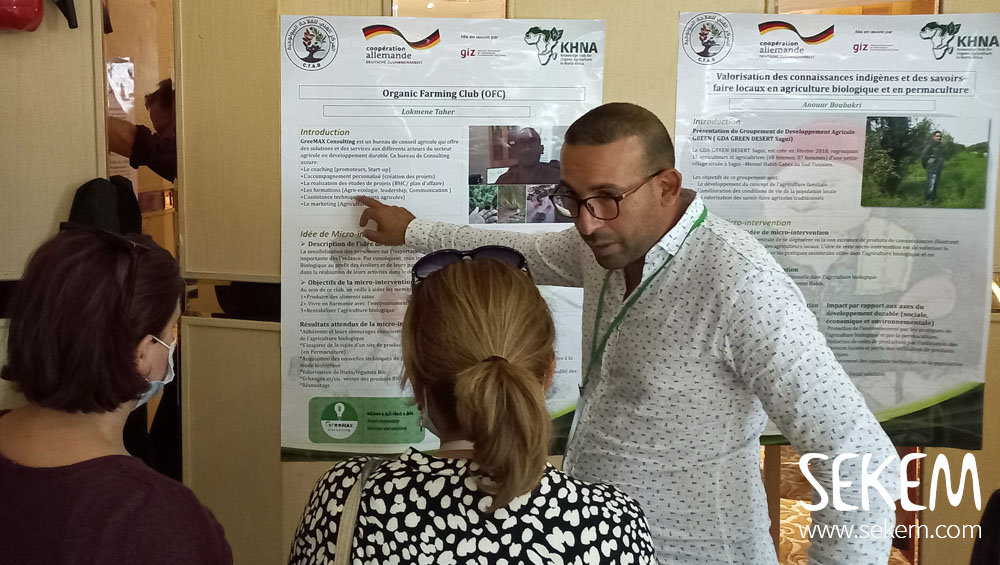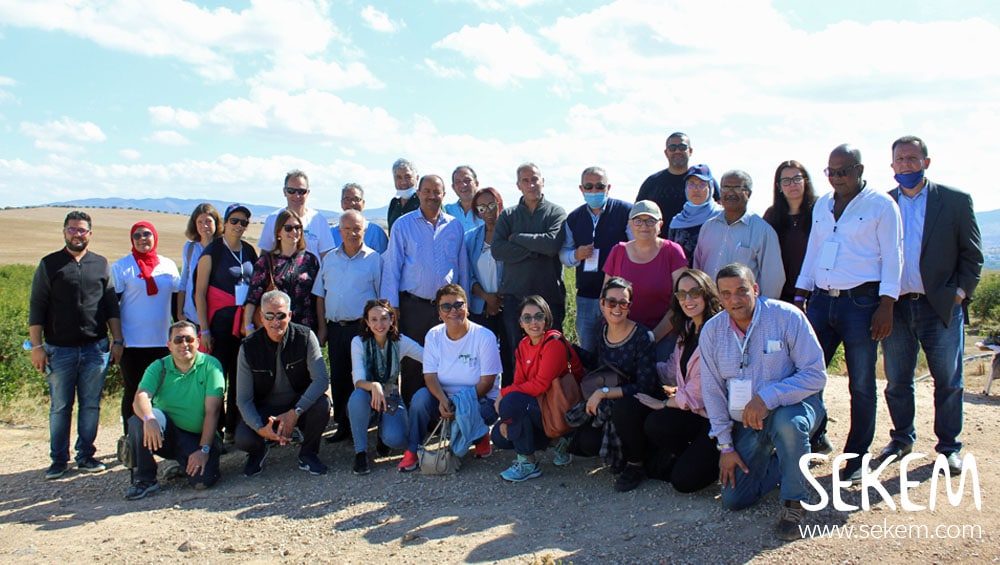A year and a half had to pass before it was finally possible for the entire team of the Knowledge Hub for Organic Agriculture in North Africa (KHNA) to meet in person. The project to promote knowledge transfer on sustainable agriculture in North Africa is financed by the BMZ, implemented by GIZ and coordinated by SEKEM Friends Germany. The reasons for the late “face to face” meeting were the well-known Corona restrictions, which had put a spanner in the team’s works more than once.

Finally a face-to-face meeting
On the 18th of October, the time had finally come: in Sousse, where the Tunisian partner CTAB (Technical Centre for Organic Agriculture, an institution of the Tunisian government) is based, 26 KHNA staff members from five different countries met for four days. The teams from Morocco and Egypt arrived, as well as the project director and an expert from Switzerland and the coordination team from Germany. Until then, some colleagues had only known each other through the rectangular windows of digital meetings. The greetings on the first day were therefore no less warm – after all, they had already achieved a lot together in the course of the last 18 months. It became clear during every single hour of the workshop that numerous online meetings cannot replace personal contact.

Great atmosphere and exciting impressions
The meeting was led by KHNA project director Markus Arbenz, who skilfully guided the participants through the individual parts of the intensive programme. For example, the team reflected on what had been done and achieved so far and drew conclusions for future work. Work was done on optimising processes and many points of content were discussed. Day three was an excursion day: the Tunisian team had organised trips to an organic pomegranate farm, an eco-guesthouse and an organic olive farm. The atmosphere in the team was excellent. Lively conversations and cheerful singing shortened the bus rides between the various impressive locations.

Learning from innovative microinterventions
A real highlight was the fourth day, which was dedicated to the multipliers. They play a crucial role in the project and presented their planned so-called micro-interventions during the workshop. These are actions, events and trainings with which they will spread their knowledge about organic farming. The presentations of these ideas took place at the “Microinterventions Bazaar”, where people could look around, listen and ask, and thus learn directly about the important work of the people on the ground.
This was not the end of yet another very eventful day, as there was still a visit to the CTAB Institute and its demo plot on the agenda. There, the group was also welcomed by Samia Maamar, the head of the part of the Ministry of Agriculture responsible for organic agriculture.
During the concluding round of the workshop, the unanimous opinion was that the event was extremely valuable and important. The personal encounters, the direct exchange, the content-related work and, most importantly, the strengthening of the team spirit were an enrichment for all participants and once again boosted their motivation enormously. United not only by the work for the same project, but also by the same values and goals, the KHNA team is working together towards a sustainable green future for North Africa.
Tanja Reischl
Learn more about the Knowledge Hub for Organic Agriculture in North Africa

